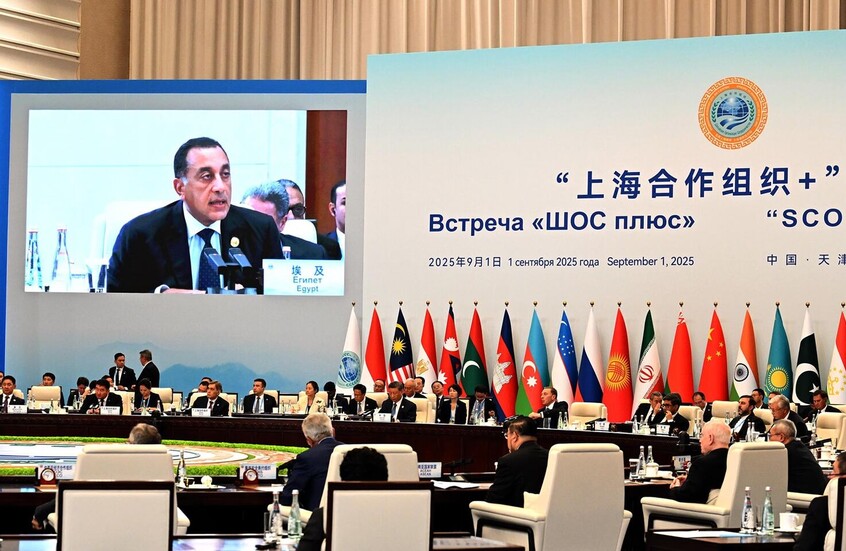Cairo: The Shanghai Summit is held in an international context that threatens the credibility of the multilateral system

Egyptian Prime Minister Mostafa Madbouly confirmed during his speech at the Shanghai Cooperation Organization summit held in Tianjin, China, that the summit comes at a highly sensitive international juncture that witnesses a threat to the credibility of the multilateral international system.
Madbouly, who delivered Egypt's speech on behalf of President Abdel Fattah el-Sisi, explained that the summit, held under the slogan "Implementing Multilateralism, Ensuring Regional Security, and Promoting Sustainable Development," comes at a time when the world faces intertwined and cross-border challenges that exceed the capabilities of any single country.
He praised the "Shanghai Spirit" based on trust, mutual benefit, and respect for cultural differences, commending China's efforts during its presidency of the organization. He emphasized the interconnection between regional security and sustainable development, calling for the activation of regional security mechanisms to ensure respect for state sovereignty, combat terrorism and extremism, and resolve conflicts through dialogue.
He also stressed the importance of reforming the global system to make it fairer and supporting the role of the United Nations in promoting international law, expressing Egypt's support for Chinese President Xi Jinping's initiatives aimed at reforming the international system and achieving greater stability.
In the economic aspect, Madbouly called for a radical reform of the global financial structure and international financing institutions, including the development of development bank policies and providing concessional financing to developing countries, as well as addressing the debt crisis. He also called for strengthening the principle of "common but differentiated responsibilities" in facing climate change, noting that raising climate commitment levels is linked to the extent of available international support in financing, technology, and national capacities.